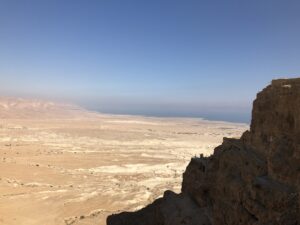At the suggestion of my good friend Jill, I’ve started reading The Great Work of Your Life by Stephen Cope, who is the director of the Institute for Extraordinary Living at the Kripalu Center in Lenox, MA. The book weaves together the 2,000 year-old Bhagavad Gita (Song of God) with stories of some famous people and composites of people the author knows, not-so-famous but presumably “ordinary” people like me. Perhaps like you.
The Bhagavad Gita is the epic treatise of Krishna and the warrior Arjuna, and much more. It’s also about living the life one is intended to live. As someone who is blessed and lucky enough to be “living her dharma,” I can relate to the people Cope is speaking about, at least so far.
Cope writes, “Krishna’s first practical teaching to Arjuna is simple and direct: ‘Arjuna, look to your dharma.’” The author goes on to note that the word “dharma” can be translated in many ways, including religious and moral law, sacred duty, divine order and perhaps, true path, to name just a few.
The rabbi in me couldn’t help feeling it was bashert to be reading this book now; especially the command, “Look to your dharma!” in light of this week’s Torah reading, Lech Lecha. Lech Lecha, which is usually translated as “Go,” can also be understood grammatically as “Go to–or for–you, yourself.” Abram (who will later become Abraham) is told by God that he and his household must uproot themselves from Haran, the place where they have been living, and go to a land that God will show him. Abram either takes a major leap of faith to move forward, or figures he has nothing to lose, and sets out on this journey.
It’s often glossed over when reading the text, but Terach, Abram’s father, was already in the process of bringing his family from their native Ur of Chaldees heading for Canaan (the land that God would show Abram), and stopped in Haran along the way, where Terach died. Abram was already on this journey! Without knowing it, he was already on his way to finding his dharma–what we might say was his calling, or purpose in life.
We can only imagine what might have been going on in Abram’s head when God told him to “go forth,” because the text didn’t record his thoughts and feelings. Imagine if that scenario were played out today… leave your home and set out for an unknown place and I’ll make your name great? And I have a bridge for sale in Brooklyn.
But one of the beautiful and amazing things about our sacred texts is that we can often find ourselves in these stories, and relate them to our lives and times. Abram was 75 years old when he was called to serve God by serving humanity; by emulating God and entering into conversation with –and even challenging–God. And by being a very imperfect person and role model.
In speaking of his friend “Katherine,” who left a prestigious job to edit a small, struggling magazine at the age of 62, Cope points out that “We tend to think that leaping off cliffs is for the young. But no. actually–when better to leap off cliffs?” For me, they’d better be little cliffs, but in all seriousness, being willing to take risks to find our dharma, to lech lecha–go forth to our true selves, can more easily be understood and embraced when we have the experience, wisdom and discernment that comes from having lived life for a while.
Did Abram/Abraham ever know that he was living his dharma? Did he embrace his calling? Do we?










0 Comments